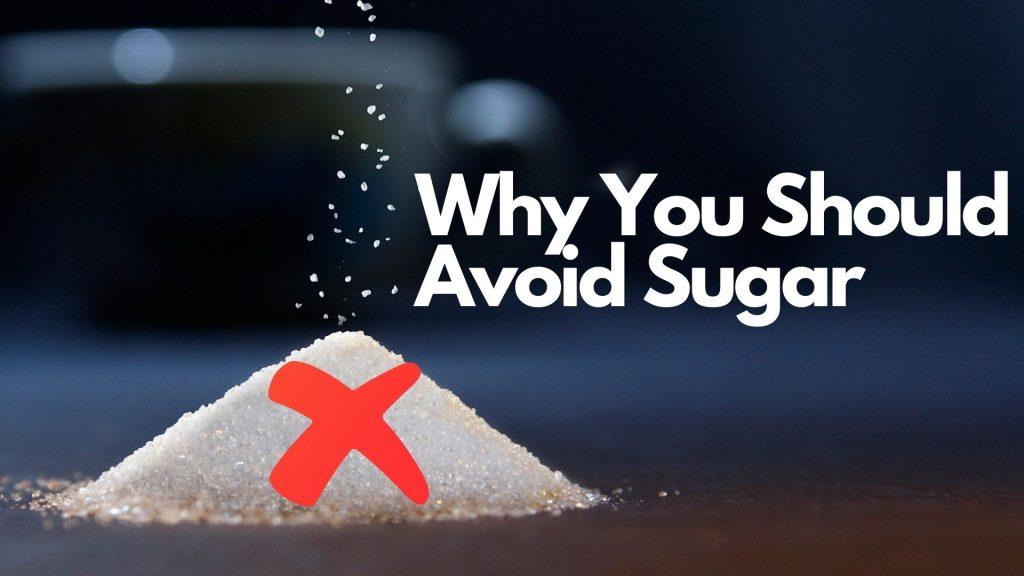
Sugar is everywhere. It’s a part of diets today, from your morning coffee to processed snacks. Although it may curb your sweet tooth, too much sugar in your diet can cause major health problems. People who eat sugar without knowing the negative effects of eating sugar.
You will learn in this article why you should be avoiding sugar, the impact of sugar on the body and how you can eliminate it easily.
The Hidden Dangers of Sugar
A lot of people think sugar is not a big deal, but unfortunately, it is connected to many health problems. Reasons to reduce sugar intake:
Leads to Weight Gain
(They provide empty calories from added sugars.)
Too much sugar leads to higher fat storage in the body.
Excess sugar consumption is associated with obesity and metabolic diseases.
Lifetime Risk of Developing Type 2 Diabetes
To increase blood sugar levels, consume sugar.
This makes insulin resistant over time.
A higher risk of type 2 diabetes is seen in people with high sugar intake.
Harms Heart Health
High sugar increases bad (LDL) cholesterol.
It raises blood pressure and inflammation.
These are risk factors for heart disease and stroke.
Weakens the Immune System
Excess sugar lowers the effectiveness of immune cells such as white cells.
It leaves the body susceptible to infections.
This results in recurring colds, flu, and other maladies.
Causes Energy Crashes
Sugar provides a rapid energy spike but a downward spiral.
It creates fatigue and mood swings.
To have stable energy levels, you need protein, fiber, and healthy fats in your diet.
Increases Risk of Depression
It can affect mood, lead to mood disorders, anxiety, depression.
More sugar = more risk of mental illness
Accelerates Skin Aging
Sugar breaks skin collagen and elastin.
That leads to early wrinkles and sagging.
Reducing sugar Our need to keep looking young.
Affects Dental Health
Bacteria in the gut are fed between two and five times a day with sugar.
It leads to cavities, gum disease and bad breath.
Eating less sugar is good for your mouth.
Triggers Inflammation
Chronic inflammation is associated with diseases such as arthritis and Alzheimer’s.
Sugar induces inflammation in the body.
A diet low in sugar can reduce pain and swelling.
Liver Disease Risk Increases
Liver overload by sugar fructose for sugar.
It can result in fatty liver disease and liver injury.
Lowering sugar is beneficial for liver function.
How to Reduce Sugar Intake
How to avoid sugar is difficult but little things can go a long way. Here’s a look at some practical ways to reduce sugar.
Read Food Labels
Look for added sugars in ingredient lists.
Seek out words such as glucose, fructose and corn syrup.
Select for products with low or zero added sugar.
Avoid Sugary Drinks
Soda, fruit juices, and energy drinks have high sugar.
(Drink water, herbal tea, or drinks without added sugar).
Lemon- or cucumber-infused water can be a great substitute.
Eat Whole Foods
Persuasion food often have hidden sugars.
Opt for fresh fruit, vegetables and whole grains.
If you do eat out frequently — cut the meals in process.
Use Natural Sweeteners
Substitute sugar with raw honey, stevia, or monk fruit.
Stay away from artificial sweeteners as they have side effects.
To adjust your taste buds, gradually lessen the sweetness.
Limit Desserts and Snacks
Fats, high sugar, and carbohydrates.
Opt for something healthier — like dark chocolate or fruit.
Consume protein and fiber snacks to maintain fullness for longer.
Cook at Home
Hidden sugars are in restaurant and packaged foods.
One can control the ingredients while preparing meal at home.
Test out recipes for healthy things that can hit the same cravings.
Choose Low-Sugar Alternatives
Choose unsweetened yogurt, nut butter.
Prefer whole grains to refined grains.
Instead of sweetened versions, drink black coffee or tea.
Practice Mindful Eating
Take your time, savor the taste of real food.
Be wary of eating your emotions away with sugar cravings.
Drink enough water so as to not confuse thirst with hunger.
Absorb More Proteins, and Fiber
Blood sugar levels are better regulated with protein and fiber.
Eggs, nuts, and seeds and vegetables keep you full.
Sugar cravings are eliminated by balanced meals.
Get Enough Sleep
Sleep deprivation enhances your desire for sweets.
Getting enough sleep helps the body regulate appetite better.
Get 7-9 hours of sleep each night.
The Long-Term Effects of Cutting Sugar
There are a lot of health benefits of avoiding sugar. Things that could change for the better:
Improved weight management: Reduced desire for food and better dietary habits.
Better mental clarity: Goodbye energy crashes and brain fog.
Fewer illnesses: Stronger immune system.
Improved mood and mental health: Risk of anxiety and depression reduced.
Skin that Glows: Less breakouts and slower aging.
Lower cholesterol and blood pressure: Healthier heart
Conclusion
Sugar is not dangerous and is even harmless to your body in a healthy dose, but when consumed in excess, sugar will affect your health in many ways. It leads to obesity, diabetes, heart disease, and even mental health problems. Lowering sugar consumption can have a huge effect on your overall health.
You can start improving your health now, simply by reading product labels, choosing whole foods and cutting back on sugary beverages. It can be a journey, but the journey to a low sugar lifestyle can be a tough road, but well worth it. Take a tiny step, keep doing it, and enjoy your health.

Very good